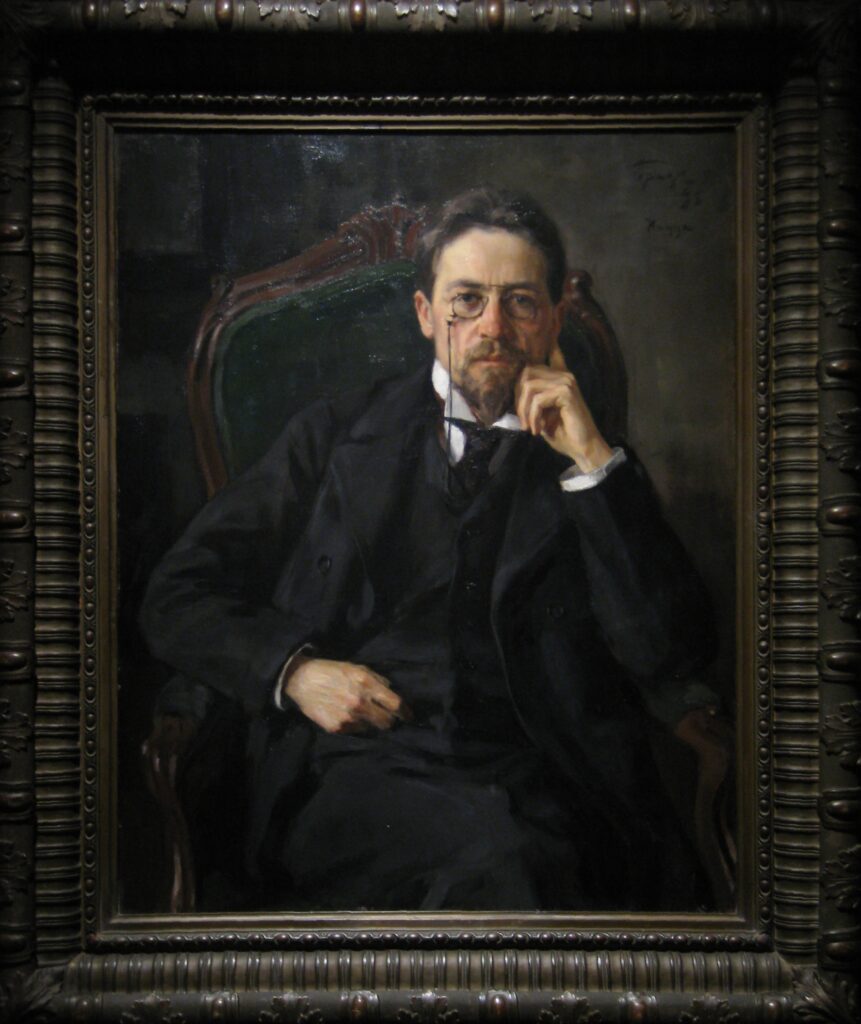
Details, Juggling, and Chekhov’s Gun
Imagine you’re reading a story and learn in the first chapter that the protagonist does not speak. Maybe he can speak but chooses not to. Maybe he is unable to speak. No matter the reason, the fact remains.
As we readers assess this story, we are immediately intrigued! How did the protagonist get this way? Has he always been mute, or is this something recent? How does this affect his daily life? How does the protagonist accomplish tasks that one assumes require the power of speech? And how does this fact tie into the story we’re about to read? Will it add complications? Humor? Tragedy? Serve as a plot point? Be resolved by the end of the book?
Readers have been taught to expect that something significant about a character is important to the story. We’ve learned the lesson because—in part—of the influence of playwright Anton Chekhov and his guidance that all aspects of a story should have some significance. The writer shouldn’t make the main character unable to speak unless that detail has something to do with the story itself.
And let’s presume in this particular case that our protagonist’s inability to speak does indeed matter for the plot! Our protagonist is about to get wrapped up in a murder investigation, called into action because of something he witnesses that no one else seems concerned about. Indeed, because he can’t speak the details to the police (and his attempts to use a small whiteboard lead only to frustration for all), his account is discounted. In a late scene of the book, the protagonist is cornered by the killer and is unable to call for help!
If a writer is plotting a story like this and linking an early detail to a later plot point, well done! At the least, this shows the author can outline a story and build suspense. None of this is easy to do.
But I’m not very interested in the link between the beginning and the end. Most any writer, with even the most rudimentary plot planning, can achieve this. Instead, what I’m looking for is the middle piece and the writer’s ability to incorporate the early details into the realities of life. There is juggling required before the final payoff from an early detail.
Here’s a literal example of juggling before we return to thinking about the character who cannot speak. Our protagonist is in a spooky house, trying to find a missing person. She hears a noise coming from the basement and is driven to investigate. She grabs a flashlight, a baseball bat, a knife, and a pair of handcuffs. We can see exactly why she would want these things! She heads down into the dark basement and during her search, she spots a box of Polaroid photos. She starts to look through the photos and notices they are all of her!
Did you spot where the juggling comes in? What did she do with the numerous things she was carrying? In this example, the writer has linked items early on with a likely payoff only to get lost juggling all these details. (This comes from an actual example from a published book. In that case, it was only a flashlight, but the protagonist was going through photos with two hands, with no word on where the flashlight was.)
The same thing can happen with our protagonist who cannot speak. What does he do for a living? There are an array of jobs that are unlikely for him. Does he have friends, and if so, what are those friends like? How does he accomplish tasks of daily life? Is a portable whiteboard the best he can do for communicating? All of these pieces and many more need to be juggled as part of the story.
In the hands of a thoughtful writer, they can all be handled! This kind of world-building—when it goes right—is one of the most satisfying elements of storytelling. But if thinking only about Chekhov’s gun (or if thinking only about details, with no attention to plot), the writer can get tangled up in their details and end up with a story that leaves the reader asking, “Wait, what?” rather than being carried along in the story’s world. It’s one thing to load the gun. It’s another to have it be fired at the end of the play. But the real work comes in understanding what the gun is doing between its introduction and its discharge. It must be juggled with care. (Wait, should we be juggling a loaded gun? Clearly, I’ve failed in my attempt to juggle this example through to the end of this blog post.)
Have you ever added details meant to play out at the end of a work? Have you ever gotten stuck trying to handle a detail that became a burden? Share your experiences in the comments!

